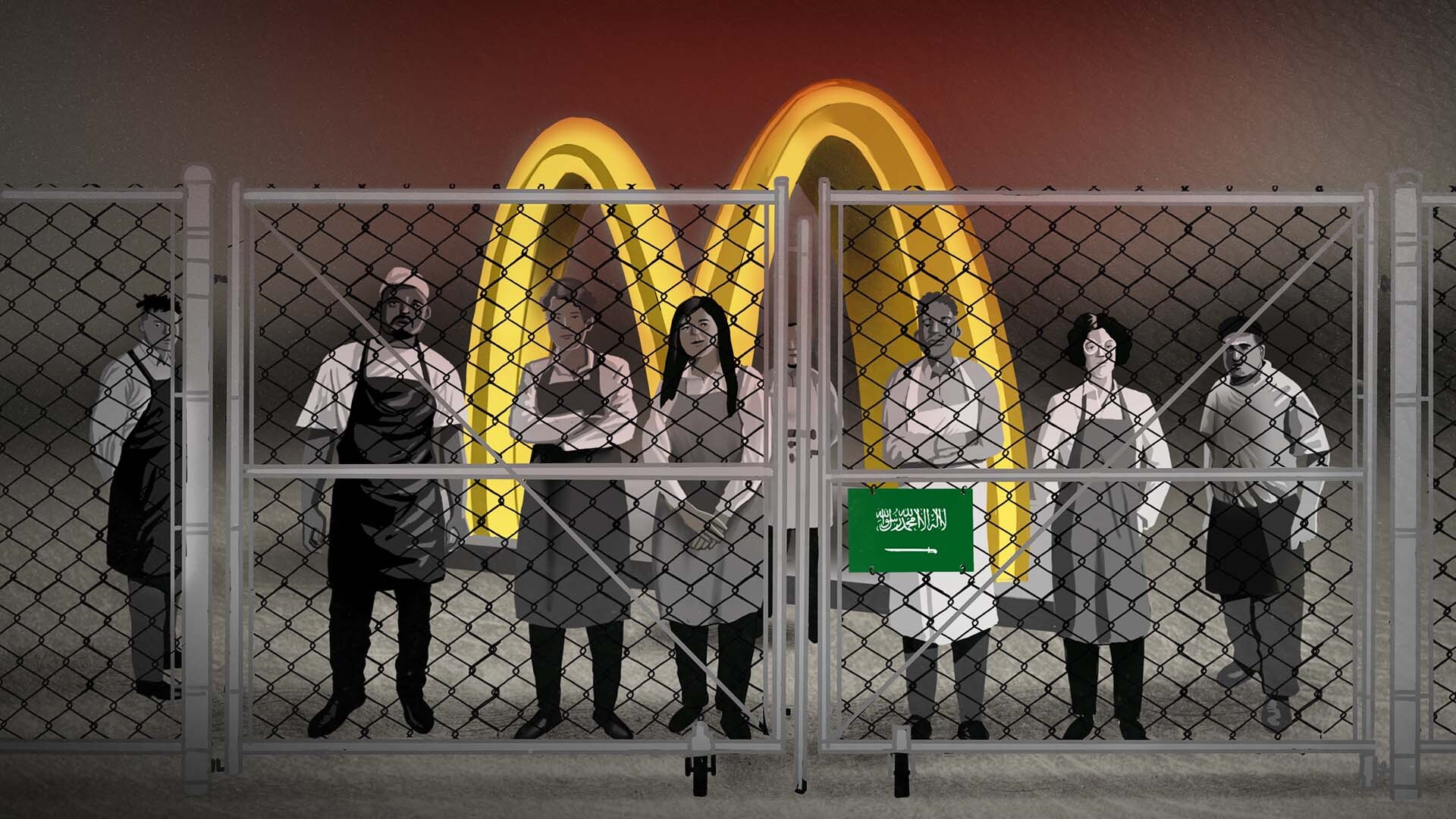Nearly 100 current and former workers interviewed by ICIJ reported being subjected to practices that are widely considered indicators of labor trafficking.
Over the years the world’s most powerful fast-food chain, McDonald’s, has twice honored a Saudi prince’s business empire with its highest accolade for its franchisees: the Golden Arch Award.
Prince Mishaal bin Khalid al-Saud — who controls more than 200 McDonald’s outlets across Saudi Arabia — told CEO Magazine in 2018 that one of the secrets of his enterprise’s success is “ensuring a positive and favorable environment for our employees.”
Macrae Lee and Buddhiman Sunar recall a different environment. They say that they labored under harsh and unfair conditions at McDonald’s locations owned and operated by the prince’s Riyadh International Catering Corp.
Lee, who is from the Philippines, says RICC’s store managers ordered him to put in as many as 22 hours a day and hundreds of hours of unpaid overtime. He was denied days off for rest, he says, even when he was sick with fevers. When he tried to quit, a manager withheld paperwork that would have permitted him to find a new employer, he claims, leaving him jobless and begging on the street for food and water.
Sunar says he had to pay a stiff recruiting fee to an employment agent in Nepal to get a job at the prince’s fast-food outlets. Once he was in Riyadh, the Saudi capital, he worked 13- and 14-hour shifts with no breaks, he says. All the while, managers screamed abuse, he says, calling him “an animal” and asking, “Don’t you have a brain in your head?” If he stepped outside the restaurant, he says, he had to fill out an “incident report” explaining why.
“I felt trapped,” Sunar, who left his job with the Saudi McDonald’s franchisee in 2022, said in an interview with the International Consortium of Investigative Journalists. “I felt like I was in jail.”
Lee and Sunar are among nearly 100 migrant laborers from Asia who told ICIJ that they’ve been subjected to repressive labor practices while working at Persian Gulf locations of four well-known American and British brands: McDonald’s, Amazon, Chuck E. Cheese and InterContinental Hotels Group.
The current and former workers say independent employment agents in their home countries coerced them into paying exorbitant recruiting fees, while labor contractors and workplace supervisors in Saudi Arabia and other destination countries subjected them to abuses that included confiscating their passports and limiting their freedom to leave their jobs.
These practices are widely identified as indicators of labor trafficking, which is defined by the United States and the United Nations as using force, coercion or fraud to exploit workers.
The workers were interviewed as part of Trafficking Inc., a joint investigation by ICIJ, the Guardian US, NBC News, Arab Reporters for Investigative Journalism and other media partners. The latest installments in the investigation reveal how some of the world’s most recognized companies may be complicit in labor abuses through their overseas subsidiaries, franchises and business partnerships.
read more: https://www.icij.org/investigations/trafficking-inc/mcdonalds-chuck-e-cheese-brands-labor-abuses/
archive: https://archive.ph/2Vdn0
Holy shit…



